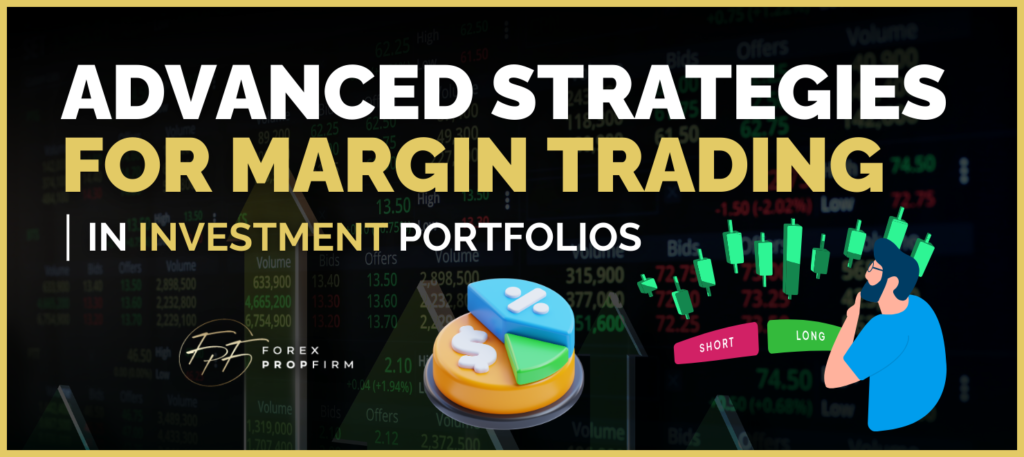
A common tactic used by traders to optimise profits while lowering margins is margin trading. It entails taking out a loan from a broker to purchase securities that the trader expects to appreciate. For a seasoned trader with an instant forex-funded account, looking to increase the size of their capital, margin trading can be a very useful instrument. It can, however, also be dangerous for novice traders who are unaware of all the dangers.
Margin Trading Strategies for Beginners
1. Start Small
Starting modestly is the first and most crucial tip for novices. Since margin trading carries some danger, it’s crucial to begin with a little investment and progressively raise it as you develop more expertise. This will assist you in reducing your losses as you become more adept at margin trading.
2. Use Stop Loss Orders
For margin traders, stop-loss orders are an invaluable tool. To reduce losses, these orders automatically sell a security when its price hits a specific level. Traders may safeguard their investments and reduce the chance of losing more money than they can afford by putting stop-loss orders in place.
3. Do Your Research
It’s crucial to conduct research before purchasing any securities. This entails examining the company’s financial statements, comprehending market patterns, and assessing the performance of the securities. You may improve your chances of success in your instant forex-funded account and make better financial judgments by carrying out your due diligence.
4. Diversify Your Portfolio
Any investment strategy must include diversification; margin trading is no exception. You may spread out your risk and reduce the effect that a single trade will have on your entire portfolio by diversifying it. By doing this, you can raise your chances of success and safeguard your money.
5. Use Leverage Wisely
In margin trading, leverage is an effective instrument, but it may also be risky. Leverage should only be used sparingly and when necessary. Traders should always be mindful of the dangers associated with employing leverage and never invest more than they can afford to lose.
6. Keep an Eye on Market Trends
Watching market movements is crucial since they can have a significant effect on margin trading. Traders should keep themselves informed about the most recent developments and market patterns, and they should be ready to modify their plans of action as necessary.
7. Stay disciplined
Ultimately, it’s critical to maintain discipline when trading on leverage. This entails establishing specific financial objectives, adhering to your plan, and refraining from making snap judgments. Traders can lower their risks and improve their chances of success by maintaining discipline.
Margin Trading Strategies for Advanced Traders
1. Technical Analysis
Expert traders frequently employ technical analysis as a tool to assess market trends and arrive at well-informed trading decisions. Trading professionals can determine possible entry and exit locations for their trades by utilising tools like charts, indicators, and price patterns. Because technical analysis enables traders to make fast judgments based on current market data, it can be very helpful for margin trading.
2. Fundamental Analysis
Another tactic sophisticated traders employ to assess a company’s financial standing is fundamental research. To ascertain a stock’s fundamental value, this entails examining elements including financial statements, industry trends, and earnings reports. Because it enables traders to find cheap stocks with the potential to appreciate over time, this might be helpful for margin trading.
3. Stop Loss Orders
Traders employ stop-loss orders as a risk management technique to control their losses if a trade doesn’t work out. This entails establishing a fixed price at which a trade will be automatically closed if the market turns south. Because stop-loss orders let traders control their losses in the event of unforeseen market fluctuations, they are especially helpful for margin traders.
4. Leverage
A crucial component of margin trading is leverage, which enables traders to borrow money from their broker to boost their purchasing power. Leverage, however, can also raise the risks involved in margin trading because it increases both gains and losses. Leverage is a tool that experienced traders should employ with caution and only when they are confident.
5. Diversification
Expert traders employ diversification as a risk management technique to distribute their investments over a variety of assets and sectors. Traders can reduce risk and improve their chances of making good transactions by diversifying their portfolios. With margin trading, this can be especially helpful as it lets traders reduce their exposure to a single market or asset.
6. Options Trading
Expert traders employ the strategy of options trading to protect their holdings and boost their profits. Purchasing or selling options contracts that grant the holder the option—but not the duty—to purchase or dispose of the underlying asset at a predetermined price is involved in this. When it comes to margin trading, options trading can be especially helpful since it lets traders reduce their risks while still benefiting from market opportunities.
Conclusion
For investors who want to maximise their gains with the least amount of margin, margin trading may be a good option. When determining whether margin trading is good for your instant forex-funded account, it’s crucial to take into account your individual risk tolerance, investment objectives, financial status, knowledge, and experience. It’s crucial to take into account margin trading options, as they can be more appropriate for your particular situation.
